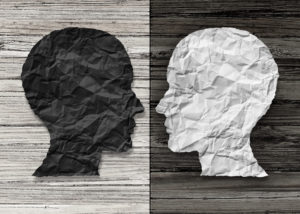Overcoming addiction is one of life’s most difficult challenges. As is struggling with a mental illness. But if you’re one of the millions battling both at once, it might feel impossible.
Fortunately, it’s not. Since you’re battling both conditions simultaneously, the two become one complex problem. So the key to recovery is treating both conditions at the same time through dual diagnosis treatment.
If this all sounds too intimidating, allow us to ease your worries. Below are 7 encouraging reasons to consider dual diagnosis treatment. Read on to see why it’s right for you.
What is Dual Diagnosis Treatment?
The term dual diagnosis is applied when a patient is experiencing addiction and a mental disorder at the same time. Dual diagnosis treatment is a method for treating both issues simultaneously rather than individually.
With dual diagnosis treatment, doctors won’t treat either condition without first considering how the treatment will affect the other. Both conditions are taken into account.
To say this is more effective than treating conditions separately is an understatement. As you’ll see below, it’s actually the only effective way to treat a dual diagnosis.
1. Dual Diagnoses are Very Common
In 2014, there were 7.9 million adults in the U.S. with a co-occurring mental disorder and substance abuse. 4.1 million, more than half the total, are adult males.
As you can see, this is a well-known problem we’ve been addressing for a long time. The good news is that, for the medical industry, there’s nothing new or unusual about it.
The tricky part is that each dual diagnosis case is unique. That is, the specific combination of conditions varies from person to person. Fortunately, there’s good news to that as well.
2. It’s Personalized For You
Having a unique condition means you need unique care. Dual diagnosis treatment gives you that unique care.
It ensures you won’t receive generic, ineffective treatment. You’ll get the very best care, carefully planned and personalized for your particular dual diagnosis.
Instead of seeing each condition as a separate entity, your doctor pays attention to how each affects the other. They’ll also consider how the treatment of one will affect the other. What this means for you is more active, careful attention from your doctor and more of it.
3. Dual Diagnosis Treatment Mediates Between Both Conditions
Over 1 in 4 adults with mental illness have co-occurring substance abuse problems. This is most common in those struggling with depression, anxiety disorders, personality disorders, and schizophrenia.
This illustrates the reason most dual diagnoses develop in the first place. Certain mental disorders contribute to/worsen substance abuse and vice-versa.
First, one leads to the other. Then both continue making each other worse. They feed off each other to create one, big, self-sustaining problem.
For example, someone may abuse alcohol to self-medicate their depression. In turn, the guilt and other problems caused by alcoholism worsen the depression.
This dynamic is one of the issues that dual diagnosis treatment, and only dual diagnosis treatment, addresses. Dual diagnosis treatment works as a mediator between the two conditions to stop them from feeding off each other.
This is often done by educating and training of the patient. The patient is taught to be made aware of how the two conditions affect each other. They might then be taught coping strategies through CBT or other psychotherapy techniques.
4. Treating Conditions Separately Can Make Both of Them Worse
There’s something even worse about dynamic we just described. Many well-meaning doctors will treat one condition unaware there is a second. Very often, treatment for one condition without regarding the second will make the second one worse.
This may be the biggest reason dual diagnosis treatment is so important. To ensure proper care and medication, doctors must look at and address the whole problem, not just part of it.
Therefore, it’s essential that your doctor knows of all your addictions and mental health disorders prior to treatment. Otherwise, the treatment may do more harm than good.
But, again, there’s good news. This means that dual diagnosis treatment is the only effective way to treat multiple conditions.
5. Integrated Treatment
Providing complete, comprehensive care of both co-occurring diagnoses requires an integrated approach. That is, treatments for both the addiction and the mental illness will be integrated into one program in one location.
This makes things much simpler for the patient. For one thing, scheduling appointments is less complicated. Rather than seeing different doctors at different facilities for different issues, all are taken care of at once.
Integrated treatment also simplifies the diagnoses themselves. Struggling with these two giant problems separately is too much for most patients to cope with. Treating them together under one roof helps the patient see it as one problem instead of two.
6. You’re Legally Allowed Time Off For Treatment
Although addiction and mental health disorders can cost you your job, treatment cannot. If you’re worried you won’t be able to get time off for treatment, the government’s got your back.
Under the Family and Medical Leave Act (FMLA), employers are legally required to provide employees with time off for medical reasons and important family issues. This includes treatment for addictions and mental health disorders.
If you require dual diagnosis treatment, you are entitled to 12 work weeks of unpaid medical leave per 12-month period. Your job will be waiting for you when you get back.
This also applies if you’re helping a loved one with a dual diagnosis receive treatment. Family intervention is covered by the FMLA as well.
7. Treatment at Your Own Pace
Few mental health problems are more difficult or complex than a dual diagnosis. And the medical professionals at a dual diagnosis treatment facility understand this better than most.
They know treatment won’t be quick or easy, and they won’t try to rush through it. They treat each patient with gentleness, patience, and compassion until rehabilitation is complete.
And that means you’ll receive treatment at a pace that’s comfortable for you.
Do You Need Dual Diagnosis Treatment?
If you know you have co-occurring disorders, you now know that treating them separately is not sufficient. The only effective treatment for a dual diagnosis is an integrated dual diagnosis treatment program.
If you only suspect you have co-occurring disorders, it’s time to stop wondering and find out. Find a dual diagnosis treatment center near you and get the care you need.
Author
-

President, CEO & Founder at Northbound Treatment Network
Paul Alexander is the CEO, President & Founder of Northbound Treatment Network in Newport Beach, California. He believes wholeheartedly in transformational leadership, organizational health and effective, fully integrated substance use disorder and mental health treatment. With over 27 years of experience in behavioral healthcare, Paul has extensive knowledge of “in vivo” treatment modalities, clinical development, operations, strategy, marketing and financial planning. He has been widely recognized for his development of collegiate-based residential treatment programs for students in recovery and authored a research study at The University of California confirming this modality’s effectiveness.
Paul’s comprehensive professional experience, willingness to innovate, and emphasis on organizational health are vital factors in Northbound’s continued success. Paul received his Certified Addiction Treatment Specialist training at Saddleback College in Mission Viejo, CA, and was awarded Outstanding Alumni Service Award in 2002. Paul holds a Bachelor of Arts degree in Criminology, Law and Society, Summa Cum Laude, from University of California, Irvine, and a Juris Doctorate degree from Loyola Law School of Los Angeles. Paul currently serves on The National Association of Addiction Treatment Providers (NAATP) board. In addition, he serves on The Family Recovery Foundation board and The CarePossible board in Orange County; both organizations are committed to raising funds for family recovery and treatment for former military personnel. Paul is in recovery himself and lives in Orange County with his wife Silvana and his two young sons, Noah and Dean.










